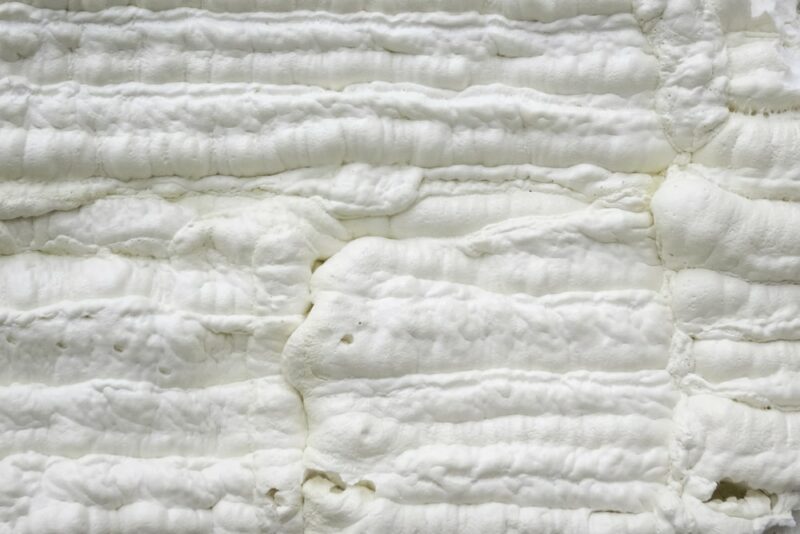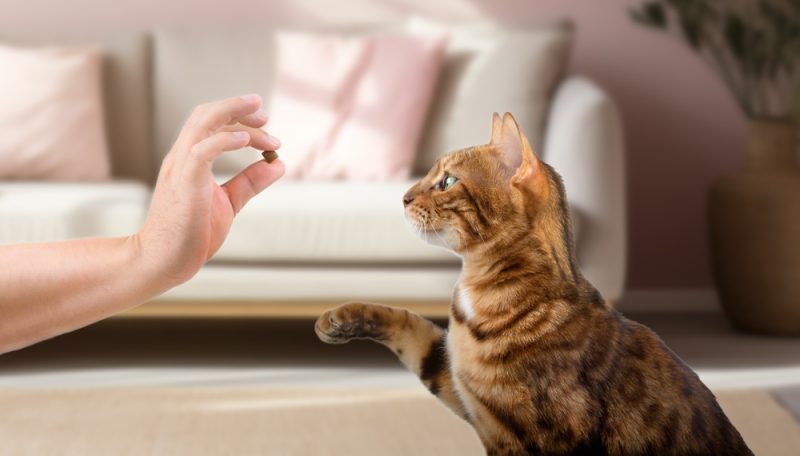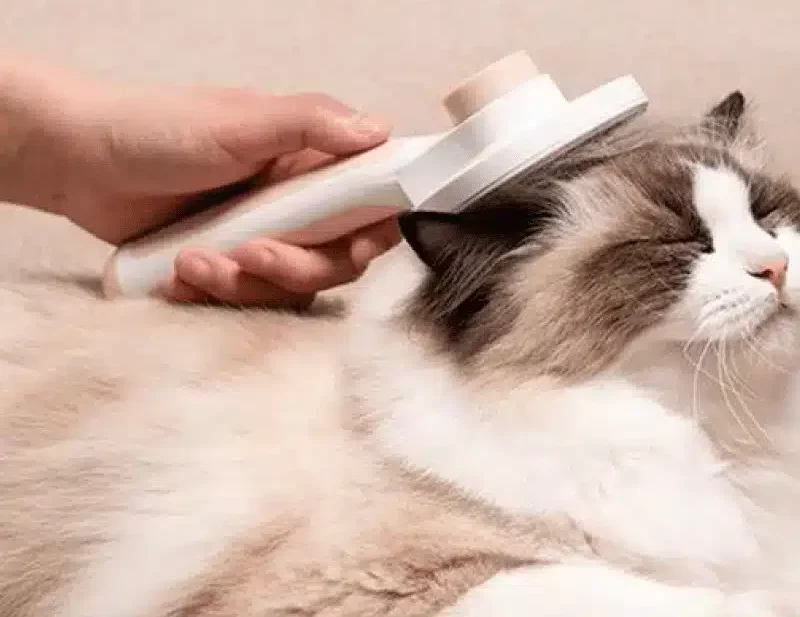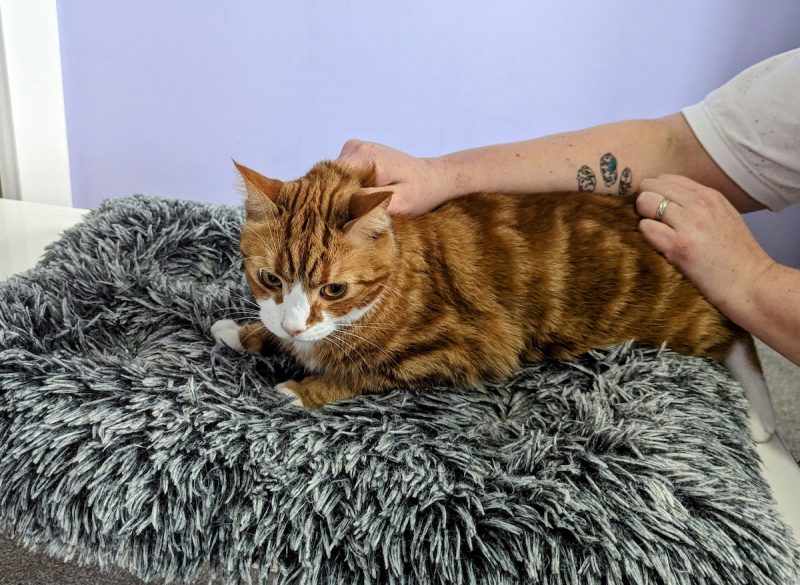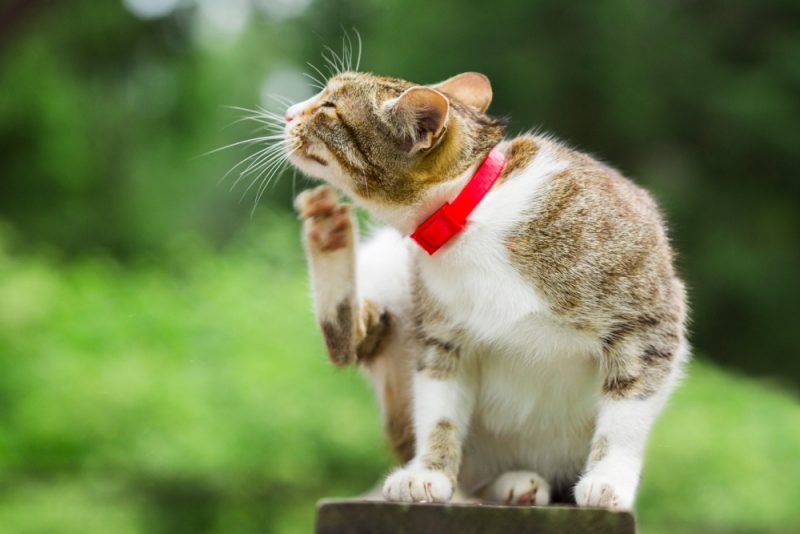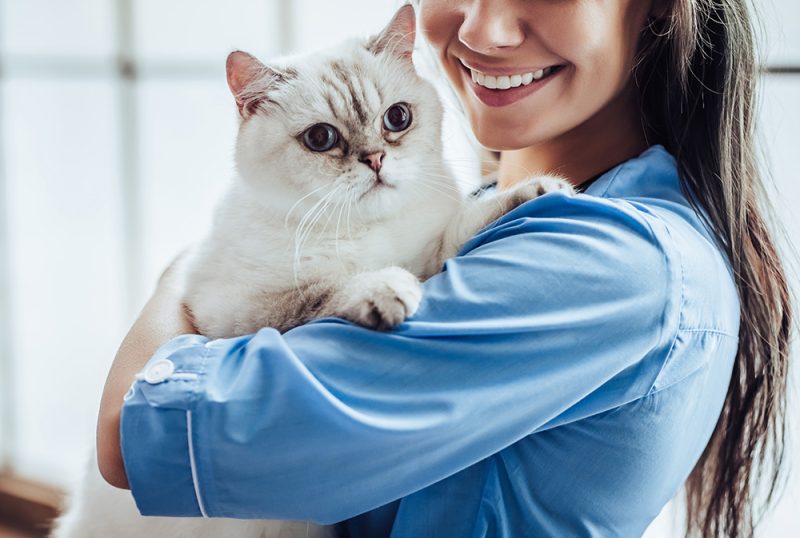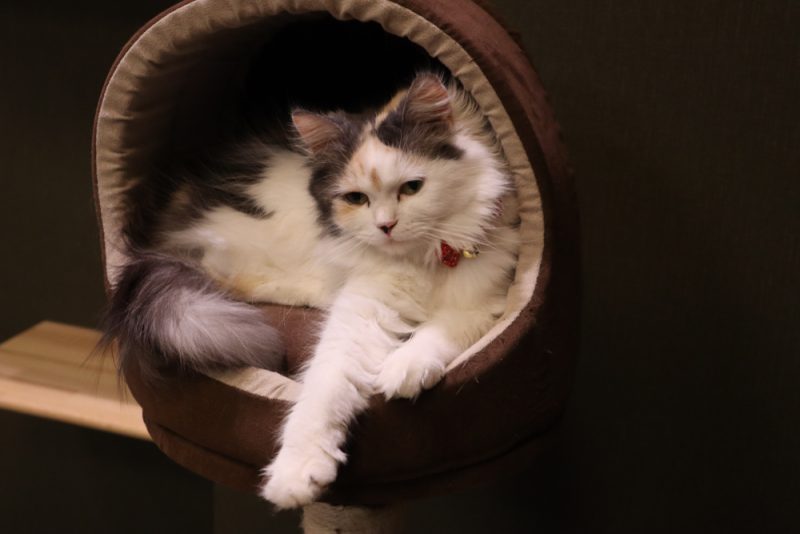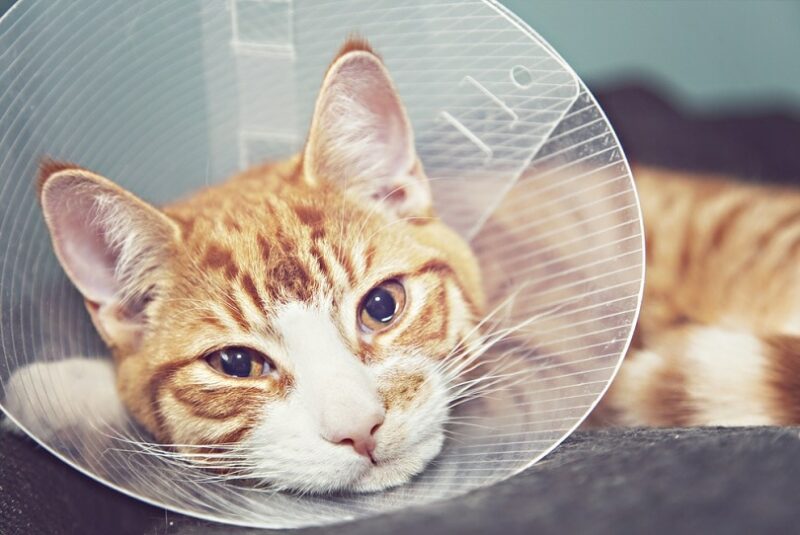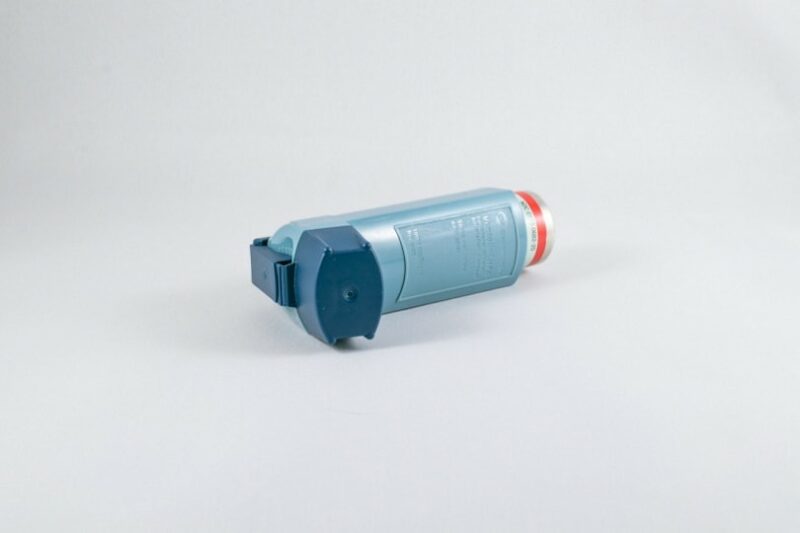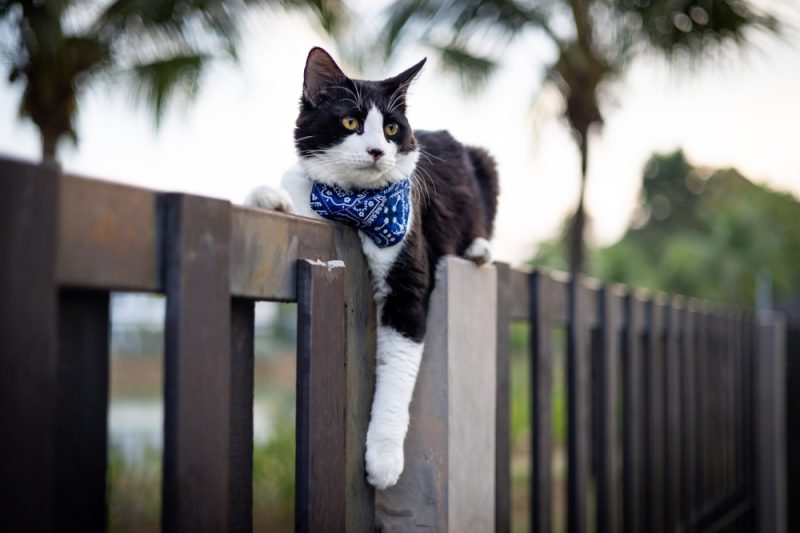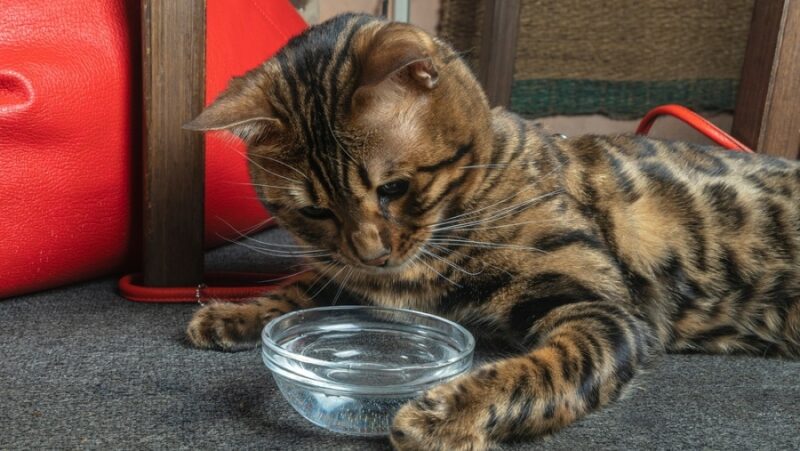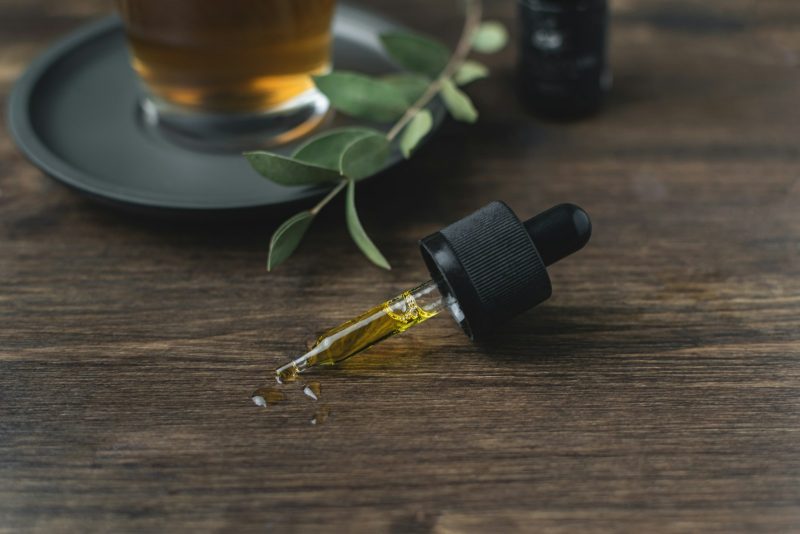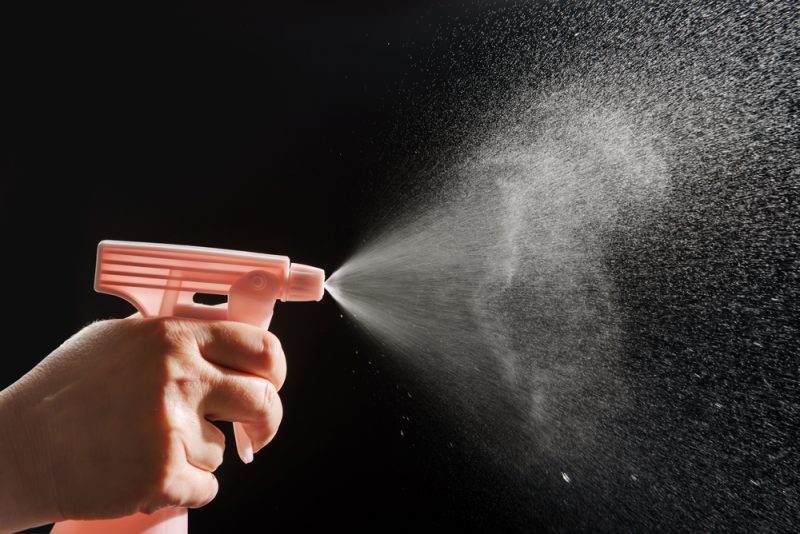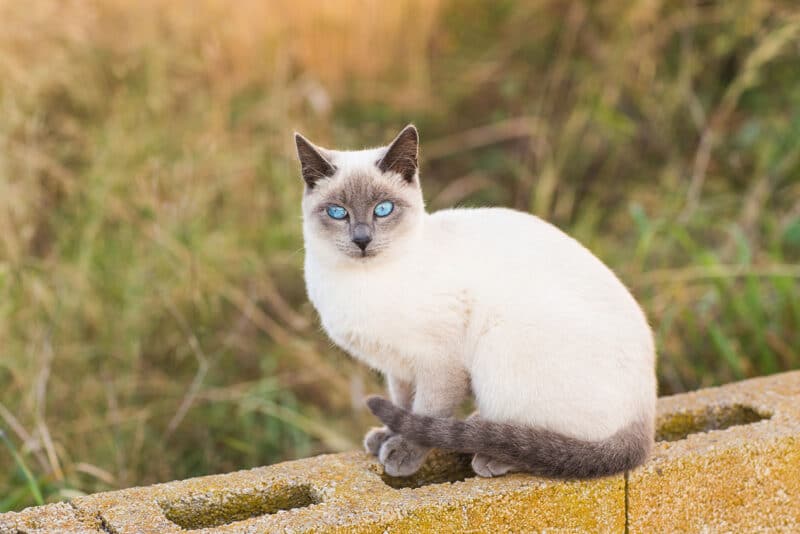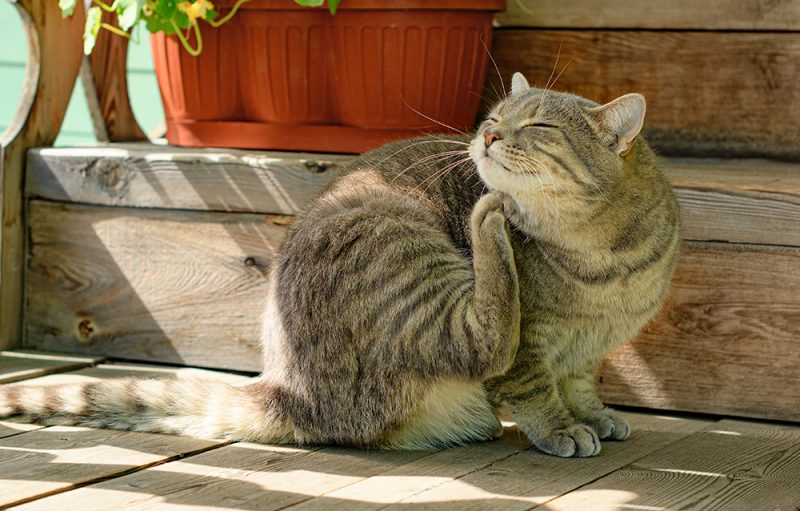In this article
Most (but not all) wall or hardware insulation isn’t going to harm your feline if they only touch it. However, it isn’t digestible, so if your feline eats it, it can cause chemical toxicities and/or gastrointestinal blockage. Such incidents are considered medical emergencies and require prompt veterinary input.
In most cases, insulation isn’t toxic to the touch. However, that doesn’t mean you should let your cat near it. If your feline is close enough to touch it, they’re also close enough to inhale airborne dust, which can irritate their lungs, nose, throat, and eyes. It’s this dust that’s the real problem. Therefore, it’s best to keep your cat away from insulation. Some insulations (like those made of fiberglass) can indeed cause issues when they’re touched.
If your cat comes into contact with insulation dust, they may show signs of discomfort, such as coughing, runny eyes, or an unexplained itch. Depending on your cat, these signs may either be transient or persist even after you’ve removed your cat from the area. If irritation continues or for your own peace of mind, you should take your cat to the veterinarian.
Is Foam Insulation Toxic to Cats?
If your pet consumes foam insulation, you should immediately call your vet. It isn’t safe to eat and can cause toxicity. Fast action is required to keep your pet safe. The situation counts as an emergency, so you should visit the emergency vet if it’s after hours. However, every type of home insulation can cause toxicity if eaten. It isn’t just foam insulation but all insulation.
If you need to speak with a vet but can't get to one, head over to PangoVet. It's an online service where you can talk to a vet online and get the advice you need for your pet — all at an affordable price!

Newer insulation is safer than old insulation. Older insulation often contains asbestos, which is very toxic. While the substance is now illegal, it can be found in many older homes. Be extra cautious if you’re renovating an older home. You should always have professionals check for the presence of asbestos since it can also be very harmful to your lungs.
Even newer insulation can contain harsh chemicals, which can harm your pet, especially if they eat them. Luckily, insulation isn’t toxic if your cat doesn’t eat it. Coming into contact with the dust of the insulation won’t cause serious health effects, though it can irritate felines.
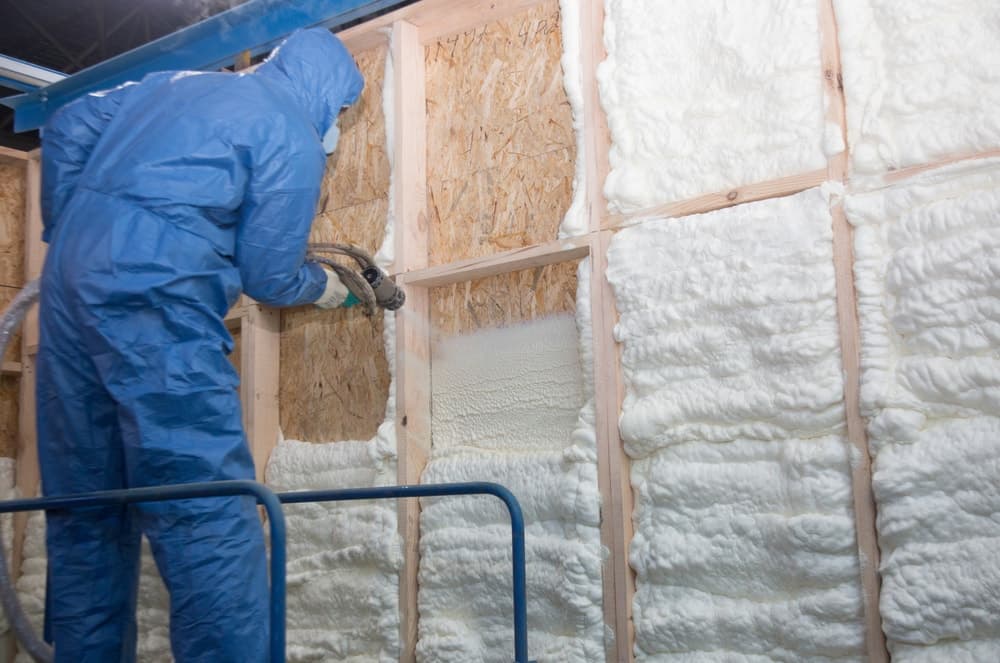
Signs of Insulation Poisoning in Pets
Several signs of insulation poisoning may occur if your cat consumes it. Luckily, these can often be treated quickly and efficiently by a veterinarian. It is important to take your pet to the vet right away, though, as putting off treatment can be deadly.
- Agitation
- Bruising and bleeding
- Diarrhea
- Drooling
- Hunched posture
- Lethargy
- Lack of appetite or refusing to eat altogether
- Retching (but not producing anything)
- Vomiting
- Yowling in pain
- Problems urinating
- Seizures
- Wobbling when standing
If your cat is acting somewhat strange and you know that they came into contact with insulation, we highly recommend immediately taking them to a vet.
Even if your pet doesn’t eat insulation, coming into contact with certain types can cause skin problems. Fiberglass insulation is extremely irritating to the skin and should only be handled with gloves. Cats can get it stuck in their fur, causing irritation and redness. Often, this irritation occurs in places without much fur, like the cat’s stomach.
Some cats do seem more prone to irritation than others. Cats with more fur tend to be less prone, as their fur protects their skin from direct contact with fiberglass. However, cats with less fur are at a higher risk.

What Is Safe Insulation for Cats?
If you have a cat, you may be wondering about the best insulation to use with them around. No commercial insulation used in a home is safe for cats to eat or be around. Therefore, instead of looking for safe insulation, you should focus on keeping your cat away from the insulation. Preferably, your cat should be elsewhere while you’re adding insulation to your house.

Will Cats Eat Insulation?
Cats rarely eat insulation. In most cases, it doesn’t seem like food for cats, and felines tend to be more discerning about what they eat than dogs. Instead, they may play in it and develop dermatitis.
However, some cats may accidentally consume it while playing with it. Even if they don’t mean to eat it, they can accidentally.
How Is Insulation Ingestion Treated?
If your cat consumes insulation, there are many treatment options your vet may pursue. An X-ray may be called for to determine where the insulation is lodged inside your cat’s intestines. Your vet may perform bloodwork to check on your cat’s organ function. Other diagnostic tests include ultrasounds or an endoscopy (if your cat only recently ate the insulation).
Some obstructions may require surgery. This is mandatory if the insulation is causing a blockage along your pet’s digestive tract. After the procedure, your veterinarian may prescribe other medications for your pet, such as painkillers or supplements.
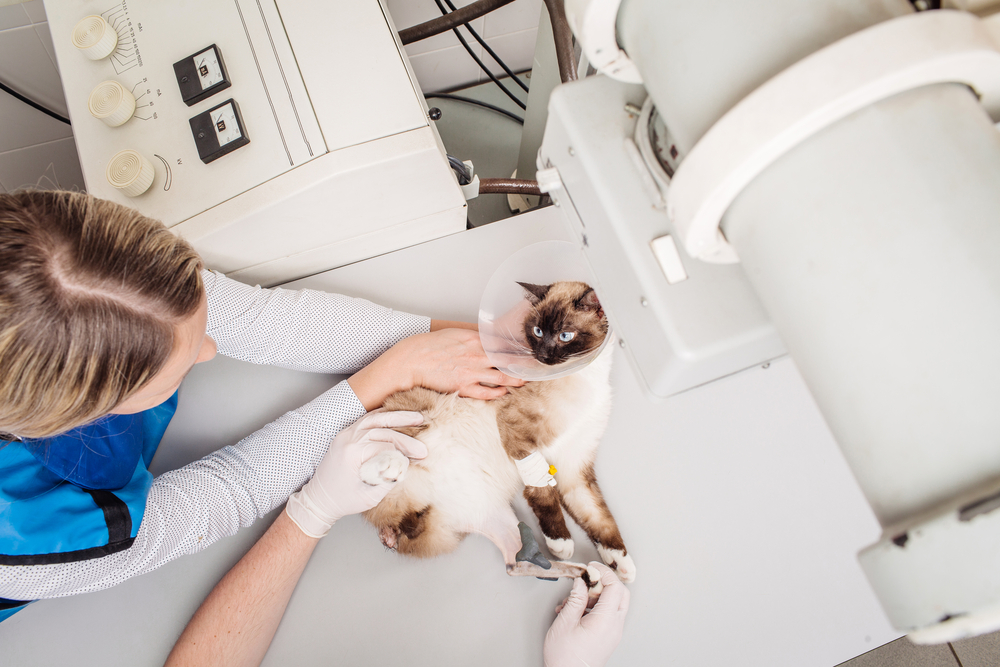
How Can I Prevent My Cat From Eating Insulation?
Cats are naturally curious and playful animals, and it can be difficult to keep them from exploring and playing with new and interesting things in their environment, including insulation.
However, insulation can be dangerous for cats to play with, as it can contain chemicals or fibers that can be harmful if ingested or inhaled.
- Block access: One of the simplest ways to keep your cat from playing with insulation is to block their access to it. If the insulation is in an attic or crawl space, consider installing a sturdy door or gate to prevent your cat from getting in. If the insulation is in a more open area, you should move it to a place that your cat cannot access. Fences do little to deter cats, as they are often athletic enough to easily scale them.
- Cover the insulation: If blocking access isn’t practical, consider covering the insulation with a barrier like a tarp, chicken wire, or This will make it more difficult for your cat to access the insulation.
- Supervise your cat: Finally, supervise your cat whenever they are in an area with insulation. This will allow you to redirect their attention if they start to play with the insulation and to prevent any potential harm.

Conclusion
Cats shouldn’t be allowed near insulation. It usually isn’t toxic if they touch it, but it can cause toxicity and irritation when eaten, and some are skin irritants when touched. Even if cats don’t see the insulation as food, they may accidentally nibble some while inspecting it. Veterinary care is necessary for this situation, as insulation can cause an intestinal blockage because it isn’t digestible.
Featured Image Credit: zossia, Shutterstock
